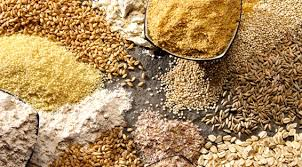|
BACKGROUND:The potential role of whole grain in preventing various mortality outcomes has been inconsistently reported in a wealth of prospective observational studies.
OBJECTIVE:We evaluated the relations between whole-grain intake and risks of dying from any cause, cardiovascular disease (CVD), and cancer through a meta-analytic approach. DESIGN:Relevant studies were identified by searching PubMed and EMBASE databases and bibliographies of retrieved full publications. Summary RRs with 95% CIs were calculated with a random-effects model. RESULTS:Thirteen studies on total mortality (104,061 deaths), 12 on CVD mortality (26,352 deaths), and 8 on cancer mortality (34,797 deaths) were included. Three studies reported whole-grain intake, and the remaining studies reported whole-grain product intake. In the dose-response analysis in which the intake of whole-grain products was converted to the amount of whole grain, the summary RRs for an increment in whole-grain intake of 50 g/d were 0.78 (95% CI: 0.67, 0.91) for total mortality, 0.70 (95% CI: 0.61, 0.79) for CVD mortality, and 0.82 (95% CI: 0.69, 0.96) for cancer mortality. A similar reduction was observed for the mortality from ischemic heart disease (RR: 0.68; 95% CI: 0.55, 0.84) but not from stroke (RR: 0.93; 95% CI: 0.54, 1.62). There was evidence of nonlinear associations of whole-grain intake with total (P-nonlinearity < 0.001) and CVD mortality (P-nonlinearity <0.001), but not with cancer mortality (P-nonlinearity = 0.12), with the curves for the associations appearing slightly steeper at lower ranges (<35 g/d) of the intake than at higher ranges. CONCLUSIONS:Our findings suggest significant inverse relationships between whole-grain intake and mortality due to any cause, CVD, or cancer. The findings support the recommendation of increasing whole-grain intake to improve public health. Source: http://www.ncbi.nlm.nih.gov/pubmed/27225432
0 Comments
Leave a Reply. |

 RSS Feed
RSS Feed
